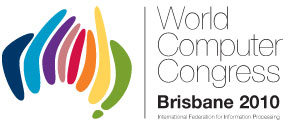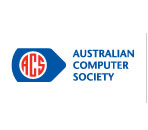The E-Government conference at WCC 2010 is a cooperation of a number of groups that already have well-established activities in the field of e-government, e-governance, e-business, e-tcetera. Notably IFIP working group 8.5 (Information Systems in Public Administration) and IFIP working group 6.11 (Communication, Information and Security Aspects of E-Business, E-services and E-society) and the CSI SIG on E-Governance (Computer Society of India Special Interest Group on E-Governance) have joined forces with the program co-chairs to make this stream of the IFIP World Computer Congress indeed outstanding and challenging.
Conference topics
Papers offering research contributions as well as papers providing practical cases, in any aspect of e-government are solicited for submission to the conference. Papers will be selected on criteria such as novelty, soundness and technical quality, interest to the participants, etcetera. Papers may present applications, service infrastructures, theory, or practical experiences on topics including but not limited to:
E-Government & Applications
E-government application areas – including
Govt. to Citizen, Govt. to Business, Govt. to Govt., Govt. to Employee projects
Digital cities and regions
E-Democracy and e-Governance
E-Inclusion to information society
E-Health and e-Education
Public e-Services for citizens and enterprises
Citizen Identity Cards for multi-purpose uses
Private Sector projects for public services
One-stop government service integration
Governance / financing issues
Portfolio management, Alignment
Adoption and diffusions
Multimedia and multilinguism
International dimension of e-Government
E-Government Infrastructure
E-Services for e-Government
Infrastructure for e-government - including
Wide Area Networks, Wireless networks, Citizen Service Centres, Kiosks
Shared services, service-oriented government
Managing and orchestrating service networks
Mobile public services
Interoperability of different applications
Performance management and evaluation
Accessibility
Privacy and security
Open source software and standards, FLOSS
National / international standards
Legal societal and cultural issues
Communities
Web 2.0, wiki’s, user-involvement
Open content, open access
Digital culture and digital divide
Public-private partnerships
Success factors
Leadership, organization and policies
Participative policy-making
Acceptance issues
Disaster and crises management





